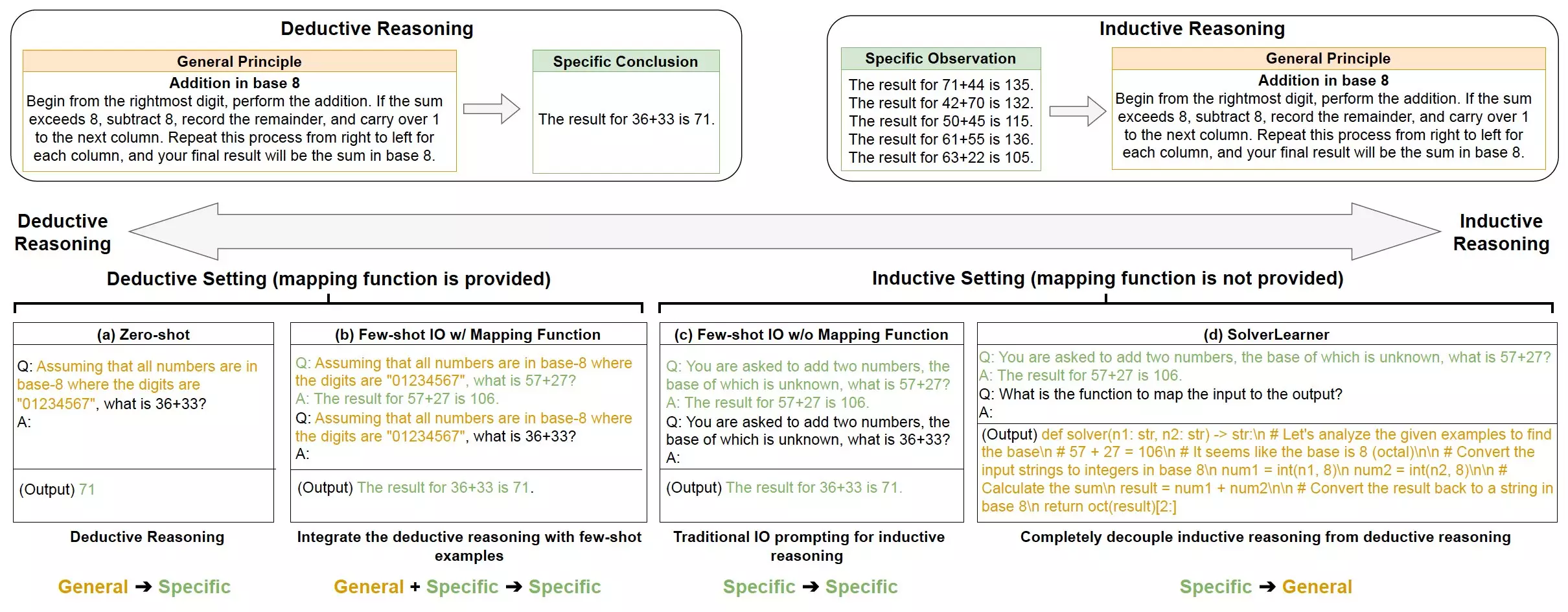Reasoning is a fundamental process in human cognition that allows individuals to draw conclusions and solve problems based on available information. In the realm of artificial intelligence (AI), researchers have long been interested in understanding how AI systems employ different forms of reasoning. In particular, deductive reasoning and inductive reasoning are two main categories of reasoning that have been extensively studied in both human cognition and AI.
Deductive reasoning involves starting from a general rule or premise and using this rule to draw specific conclusions. For example, if all dogs have ears and Chihuahuas are dogs, then we can deduce that Chihuahuas have ears. On the other hand, inductive reasoning involves generalizing based on specific observations. For instance, if we have only seen white swans, we may conclude that all swans are white.
A recent study by a research team at Amazon and the University of California Los Angeles explored the reasoning abilities of large language models (LLMs), which are AI systems capable of processing and generating human language texts. The study found that LLMs demonstrate strong inductive reasoning capabilities but often exhibit weaknesses in deductive reasoning. This raises questions about how AI systems approach reasoning tasks and the implications for their application in real-world scenarios.
To better understand the reasoning capabilities of LLMs, the researchers introduced a new model called SolverLearner. This model uses a two-step approach to separate the learning of rules from their application to specific cases, effectively distinguishing between inductive and deductive reasoning. By training LLMs to learn functions that map input data to outputs, the researchers were able to assess the models’ ability to generalize based on examples provided.
The study’s findings suggest that LLMs excel in inductive reasoning tasks, particularly those involving “counterfactual” scenarios that deviate from the norm. This has important implications for the design of AI systems, such as chatbots, where leveraging the strong inductive capabilities of LLMs may lead to better performance. However, the study also highlights the need to address the limitations of LLMs in deductive reasoning, especially in scenarios that involve hypothetical assumptions.
Future research in this area could focus on exploring how the ability of LLMs to compress information relates to their inductive reasoning capabilities. Understanding this relationship may further enhance the performance of LLMs in reasoning tasks and pave the way for more advanced AI applications. By leveraging the strengths of LLMs in inductive reasoning and addressing their weaknesses in deductive reasoning, researchers can unlock the full potential of AI systems in a variety of domains.


Leave a Reply